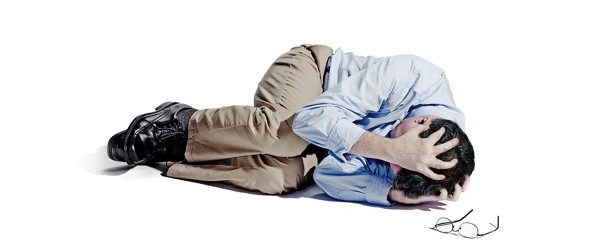One of the most common problems that our patients report is the escalation that occurs when they become “stressed out” and “lose it.” When their mind begins to worry about something that occurred in the past or might occur in the future, their body reacts the same as if they had just been exposed to an allergic plant or substance or were being pursued by a hungry predator. Their heart rate speeds up, their adrenals release a battery of circulating stress hormones, their digestion shuts down, and their body prepares itself for fight or flight.
And of course, once they become aware that their body has been stressed, they start to worry about that, too, and whether or not others may also notice it. They begin to think things like “what if my anxiety gets even worse?”, “is my voice sounding funny?”, or “can others seems me sweating?” which only escalates their anxiety and physical reactions, eventually leading to full blown panic attacks.
Fortunately, there are now many tools and techniques that can be used to manage stress and anxiety effectively. Dr. Bresler has studied, researched, and taught these techniques to the executives of many health care organization’s including the American Medical Association, California Medical Association, American Association of Orthopedic Surgeons, and the American Urological Association, American Psychological Association, and the California Psychological Association among others.
One of the most helpful and highly utilized techniques that Dr. Bresler researched and developed is called “Conditioned Relaxation.” This techniques employs Pavlovian conditioning techniques that teach users how to relax instantly simply by taking a special “Signal Breath.” To find out more about it, click here.
Dr. Bresler also researched and created a stress and anxiety reduction program called “Stress Free Moments.” This program includes twelve brief guided imagery experiences that teach users what’s best to do mentally when confronted with different types of stress. To find out more, click here.







